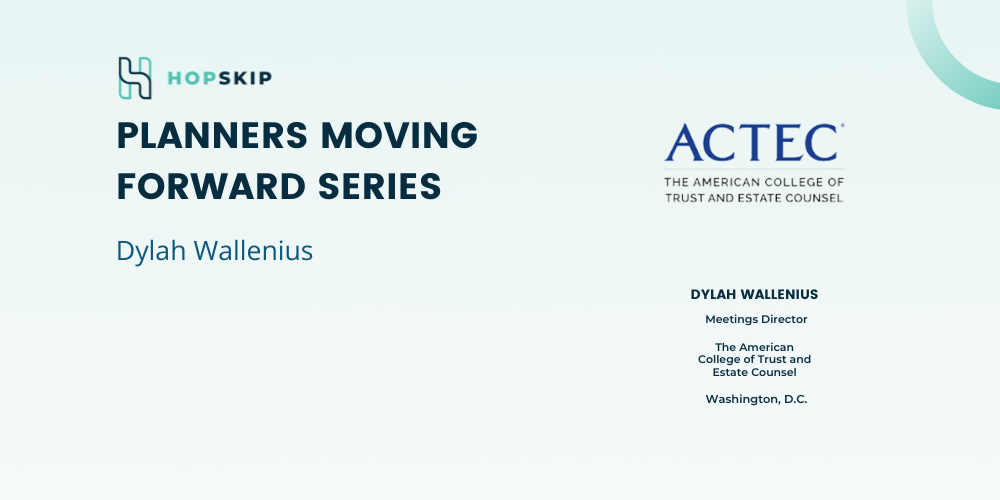This post is part of the HopSkip Planner Spotlight Series where HopSkip spotlight's planners across the industry to bring awareness of how they adapted to COVID-19, communicating and lessons learned and sharing how they are viewing the meetings and events industry in a post-pandemic world.
Name: Dylah Wallenius
Company Name: The American College of Trust and Estate Counsel
Job Title: Meetings Director
Years of Experience: 29
How do you think you are positioned, after months of persevering with the pandemic, to take advantage of our new and disrupted meetings/events landscape?
Our association managed to stay relevant during the pandemic by "continuing the conversation" online with our members: through virtual meetings, Q&A sessions, continuing education webinars, and even simulated cocktail parties. My team and I have obtained various virtual event planning, pandemic planning, and hybrid certifications. Our March 2022 meeting will be livestreamed for those who wish to attend online.
As our community moves forward with planning in person meetings, what new technologies or processes are you implementing that you may have not looked at before?
Technology is always changing and we're always interested in new/better ways to do things. We are implementing a new AMS this year and I'm very interested in HopSkip's sourcing platform.
As we see virtual meetings transition back to face to face, hybrid meetings are beginning to be the vehicle to return to normalcy. What are your thoughts on hybrid meetings versus traditional fully in person meetings?
It is very difficult to deliver a great hybrid meeting without spending a lot of money.
In your opinion, what do you think the biggest value for your attendees is in regards to returning to live events?
My organization is very relationship- and referral- based. While they've been able to stay current and share information online during the pandemic, they miss each other.
This post is part of the HopSkip Planner Spotlight Series where HopSkip spotlight's planners across the industry to bring awareness of how they adapted to COVID-19, communicating and lessons learned and sharing how they are viewing the meetings and events industry in a post-pandemic world.
